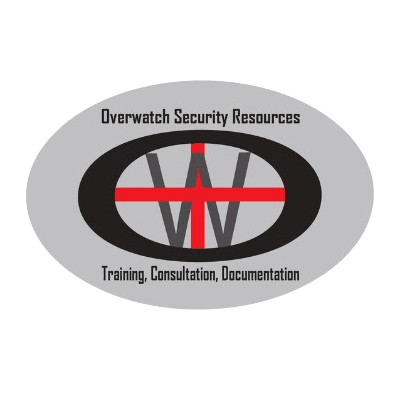The Importance of Security Inspections for Schools and Businesses

Posted on January 19th, 2024
Ensuring the safety and security of schools and businesses is a top priority in today's world. With the ever-present threats and challenges, it's crucial to take proactive measures to protect students, employees, customers, and assets. One of the key strategies for achieving this is conducting regular security inspections. In this comprehensive guide, we will explore the vital role of security inspections and how they contribute to the overall well-being and success of educational institutions and businesses.
Enhancing Safety Preparedness
Inspections focused on safety preparedness are crucial for schools and businesses. Through systematic evaluations of the physical environment, entryways, and infrastructure, organizations can pinpoint vulnerabilities and shortcomings. This proactive method enables the deployment of specific safety measures and emergency response plans, ensuring that all parties are well-equipped for diverse scenarios.
Regular inspections empower schools to uphold a secure and nurturing learning atmosphere for students. Educational institutions can pinpoint potential hazards, such as malfunctioning locks, insufficient lighting, or areas with restricted visibility, and swiftly implement necessary improvements. In businesses, these inspections aid in safeguarding employees, customers, and valuable assets by revealing vulnerabilities and facilitating the implementation of effective protective measures.
Complying With Regulations
Many schools and businesses are subject to specific regulations and requirements related to security and safety. Neglecting these regulations can result in legal liabilities and reputational damage. Security inspections help organizations ensure compliance with these regulations, demonstrating their commitment to safeguarding the well-being of their communities.
In educational environments, adherence to regulatory guidelines is vital to uphold accreditation and secure funding. Similarly, for businesses, compliance with industry standards can play a pivotal role in acquiring contracts and establishing partnerships. Routine inspections offer well-documented proof of adherence, diminishing the potential for legal consequences and elevating the organization's reputation.
Preventing Incidents
The primary goal of security inspections is to prevent security incidents from occurring in the first place. By identifying potential risks and weaknesses, schools and businesses can implement preventive measures, reducing the likelihood of security breaches, accidents, and emergencies.
For schools, proactive security measures can deter vandalism, bullying, and unauthorized access. In the business world, security inspections can prevent theft, workplace violence, and data breaches. Preventing incidents not only protects people and property but also preserves the organization's reputation and financial stability.
Improving Emergency Response
In addition to prevention, security inspections contribute significantly to improving emergency response. When organizations have a clear understanding of their security strengths and weaknesses, they can develop effective emergency action plans tailored to their unique needs.
Schools can establish protocols for lockdowns, evacuations, and medical emergencies, ensuring that staff and students know how to respond in critical situations. Businesses can develop emergency response teams, enhancing the safety of employees and customers. Regular security inspections play a pivotal role in refining these plans and ensuring their effectiveness.
Fostering a Culture of Safety
A culture of safety is essential for any organization. It empowers individuals to be vigilant, report suspicious activities, and take responsibility for their own safety and the safety of others. Security inspections contribute to fostering this culture by raising awareness and demonstrating an organization's commitment to safety.
In schools, a culture of safety can lead to better discipline, improved student well-being, and increased parent and community confidence. For businesses, it can result in higher employee satisfaction, reduced turnover, and enhanced customer trust. Regular security inspections serve as a reminder of the importance of safety, encouraging everyone to play a part in maintaining a secure environment.
Conducting Thorough Security Assessments
When it comes to comprehensive assessments, thoroughness is key. A comprehensive evaluation covers a wide range of factors that could impact overall safety, including physical infrastructure, access management, surveillance systems, and emergency response protocols. Schools and businesses must assess each aspect to ensure a holistic approach to safeguarding.
In schools, a meticulous evaluation takes into account everything from the layout of the premises to the effectiveness of personnel responsible for safety. It scrutinizes the integrity of entry and exit points, the condition of hardware components, and the accessibility of emergency exits. In businesses, it assesses the integrity of data and information systems, employee authorization processes, and visitor registration protocols. A detailed assessment uncovers potential vulnerabilities that might otherwise go unnoticed, allowing for proactive risk mitigation.
Conclusion
To fully capitalize on the advantages of safety assessments, educational institutions and businesses frequently collaborate with experts in the field, such as Overwatch Security Resources. Our team comprises seasoned professionals who specialize in security and medical training, providing customized assessment services. We collaborate closely with schools and businesses to pinpoint areas of vulnerability, craft personalized solutions, and guarantee adherence to regulatory requirements.
Are you ready to take proactive steps to enhance the safety and security of your school or business? Contact Overwatch Security Resources today at (860) 381-5803 or email us at [email protected]. Let us be your truste d partner in creating a secure and thriving environment for your community or organization.
Join Our Training
Have questions or are you ready to take the first step toward a safer future? We're here to help! Simply fill out the form below, and one of our expert team members will get back to you promptly.
